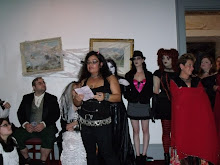allow me to share with you some excerpts of essays which have helped form my ideas of selling out and the industry, while they have to do with comics, they can be taken as cautionary tales for all writers, artists, and creatives in any medium.
An excerpt of "The Comics in Transition" essay by Bill Watterson, in The Calvin and Hobbes Tenth Anniversary Book.
"Cartoonists had few pretensions about the artistic or cultural significance of their work. From the beginning, the comics were regarded as a commercial product that existed for the purpose of increasing newspaper readership. Cartoonists considered themselves newspapermen, not artists. Their job, pure and simple, was to help sell newspapers.
"I've heard it argued that today's readers do not have the patience for involved storylines and rich artwork in comics anymore. Popularity polls are cited to show that comics are doing just fine the way they are. I disagree and I think it's a mistake to underestimate readers' appetite for quality. The comics can do much better than they presently are. Better strips could attract larger audiences, and this would help newspapers. The comics' potential--as a seller of newspapers, and as an art form--is great if cartoonists will challenge themselves to create extraordinary work and if the business will work to create a sustaining environment for it."
An excerpt of the "Licensing" essay by Bill Watterson, in The Calvin and Hobbes Tenth Anniversary Book.
"I have several problems with licensing [for derivative products: dolls, T-shirts, TV specials]. First of all, I believe licensing usually cheapens the original creation. When a cartoon characters appear on countless products, the public inevitably grows bored and irritated with them, and the appeal and value of the original work are diminished. Nothing dulls the edge of a new and clever cartoon like saturating the market with it.
"Second, commercial products rarely respect how a comic strip works. A wordy, multiple-panel strip with extended conversations and developed personalities does not condense to a coffee mug illustration width great violation of the strip's spirit. The subtleties of a multi-dimensional strip are sacrificed for the one dimensional needs of the product....Calvin and Hobbes was designed to be a comic strip, and that is all I want it to be. It's the one place where everything works the way I intended it to."
"Third, as a practical matter, licensing requires a staff of assistants to do the work. The cartoonist must become a factory foreman, delegating responsibilities and overseeing the production of things he does not create. Some cartoonists don't mind this, but I went into cartooning to draw cartoons, not to run a corporate empire. I take great pride in the fact that I write every word, draw every line, color every Sunday strip, and paint every book illustration myself. My stirp is a low-tech, one-man operation, and I like it that way. I believe it's the only way to preserve the craft and to keep the strip personal. Despite what some cartoonists say, approving someone else's work is not the same as doing it yourself.
"Beyond all this, however, lies the deeper issue: the corruption of the strip's integrity. All strips are supposed to be entertaining, but some strips have a point of view and a serious purpose behind the jokes. When the cartoonist is trying to talk honestly and seriously about life, then I believe he has a responsibility to think beyond satisfying the market's every whim and desire. Cartoonists who think they can be taken seriously as artists while using the strips protagonists to sell boxer shorts are deluding themselves.
"The world of a comic strip is much more fragile than most people realize or will admit....
"My strip is about private realities, the magic of imagination, and the specialness of certain friendships. Who would believe in the innocence of a little kid and his tiger if they cashed in on their popularity to sell overpriced knicknacks that nobody needs? Who would trust the honesty of the strip's observations when the characters are hired out as advertising hucksters? If I were to undermine my own characters like this, I would have taken the rare privilege of being paid to express my own ideas and given it up to be an ordinary salesman and a hired illustrator. I would have sold out my own creation. I have no use for that kind of cartooning.
"Unfortunately, the more popular Calvin and Hobbes became, the less control I had over its fate. I was presented with licensing possibilities before the strip was even a year old, and the pressure to capitalize on its success mounted from then on. Succeeding beyond anyone's wildest expectations had only inspired wilder expectations.
"To put the problem simply, truckloads of money were at stake--millions and millions of dollarscould be made with a few signatures. Syndicates are businesses, and no business passes up that kind of opportunity without an argument.
"Undermining my position, I had signed a contract giving my syndicate all exploitation rights to Calvin and Hobbes into the next century. Because it is virtually impossible to get into daily newspapers without a syndicate, it is standard practice for syndicates to use their superior bargaining position to demand rights they neither need nor deserve when contracting with unknown cartoonists. The cartoonist has few alternatives to the syndicate's terms: he can take his work elsewhere on the unlikely chance that a different syndicate would be more inclined to offer concessions, he can self-syndicate and attempt to attract the interest of newspapers without the benefit of reputation or contacts, or he can go back home and find some other job. Universal would not sell my strip to newspapers unless I gave the syndicate the right to merchandise the strip in other media. At the time, I had not thought much about licensing and the issue was not among my top concerns....I worried more about the contractual consequences if the strip failed than the contractual consequences if the strip succeeded. Eager for the opportunity to publish my work, I signed the contract, it was not until later, when the pressure to commercialize focused my opinions on the matter, that I understood the trouble I'd gotten myself into.
"...I am probably the only cartoonist who resented the popularity of his own strip. Most cartoonists are more than eager for the exposure, wealth, and prestige that licensing offers. When cartoonists fight their syndicates, it's usually to make more money, not less. And to make the whole issue even more absurd, when I didn't license, bootleg Calvin and Hobbes merchandise sprung up to feed the demand. Mall stores openly sold T-shirts with drawings illegally lifted from my books, and obscene or drug-related shirts were rife on college campuses. Only thieves and vandals have made money on Calvin and Hobbes merchandise.
"By the strips fifth year...I prepared to quit. If I could not control what Calvin and Hobbes stood for, the strip was worthless to me. My contract was so one-sided that quitting would have allowed Universal to replace me with hired writers and artists and license my creation anyway, but at this point, the syndicate agreed to renegotiate my contract. The exploitation rights to the strip were returned to me, and I will not license Calvin and Hobbes."
do you know of any artists who stand up for the integrity of their work at the price of their "fame?"
Wednesday, July 14, 2004
Subscribe to:
Post Comments (Atom)
















No comments:
Post a Comment